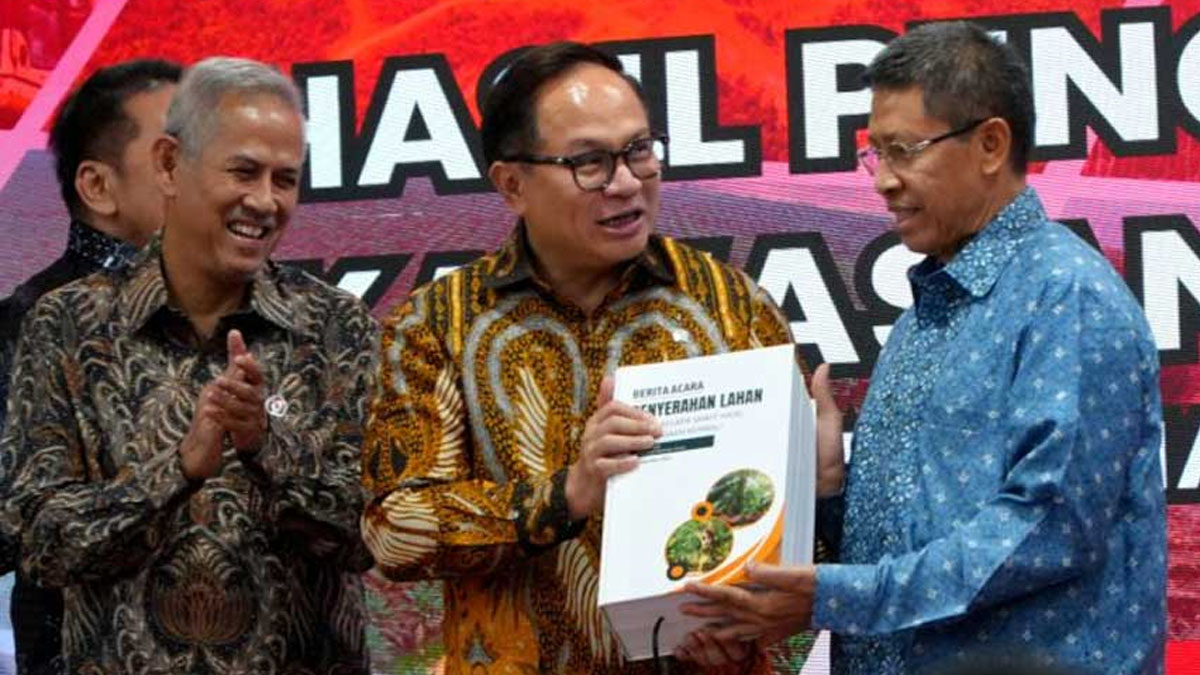PALMOILMAGAZINE, JAKARTA – The government has reaffirmed its commitment to returning productive land to the people. Through the Forest Area Enforcement Task Force (Satgas PKH), reclaimed state assets are now officially managed by PT Agrinas Palma Nusantara (Persero). A total of 1.5 million hectares has been handed over, marking a major milestone in the governance of Indonesia’s palm oil sector.
CEO of PT Agrinas Palma Nusantara, Gen. (Ret.) Agus Sutomo, SE, stressed that the land management goes beyond business, serving as a mandate from the state to improve people’s welfare. “We are committed to managing this asset professionally, transparently, and in the best interest of the nation. Revitalizing plantations is our priority so that the land becomes productive again and its benefits truly reach the community,” he told Palmoilmagazine.com from Agrinas Palma on Tuesday (Sept 16, 2025).
Since early 2025, the PKH Task Force has handed over reclaimed land in four stages. The first stage included 221,868 hectares from former PT Duta Palma concessions in Riau and West Kalimantan. The second stage covered 216,977.75 hectares from 109 companies across nine provinces. The third stage involved 394,547.29 hectares reclaimed from 232 companies and cooperatives in four provinces. The final stage included 674,178.44 hectares from 245 companies in 15 provinces. Altogether, 1.5 million hectares are now under Agrinas management.
Also Read: Forest Task Force Returns 674,000 Hectares of Land to the State
Head of the PKH Task Force and Special Crimes Chief at the Attorney General’s Office, Febrie Adriansyah, called this achievement proof that state asset recovery is working effectively. “From our target of 1 million hectares, within eight months we successfully reclaimed 3.3 million hectares of forest. Of that, 1.5 million hectares were handed to PT Agrinas Palma Nusantara with an indicative asset value of IDR 150 trillion,” he explained. He added that the state also collected IDR 325 billion via escrow accounts, IDR 184.8 billion in taxes, and IDR 1.2 trillion from land and other taxes.
Agrinas Palma Nusantara currently operates 17 palm oil mills (PKS) and is preparing to expand downstream into cooking oil and biodiesel production. Its production potential is estimated at 5.7 million tons of vegetable oil annually, which could support the B40 biodiesel program with up to 15.8 billion liters. “Our task is to restore plantations to normal productivity. The output is expected to strengthen food and energy security while creating extensive employment opportunities,” said Agus Sutomo.
This large-scale effort involves collaboration across ministries and state institutions, including the Attorney General’s Office, the Ministry of Defense, the Ministry of State-Owned Enterprises, and the Ministry of Environment and Forestry. The government emphasized that the land transfer is not only about resolving legal violations but also signals a new era of more sustainable, people-centered palm oil management. “The success of the PKH Task Force is tangible proof of Indonesia’s commitment to return natural resources to the benefit of the nation,” Febrie asserted. (P2)
